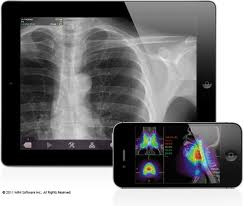 From Stage 2 MU to Patient Engagement Mobile Health on the Rise
From Stage 2 MU to Patient Engagement Mobile Health on the Rise
No matter where you turn these days in the Health IT news front you can’t escape Mobile Health or mHealth. A very, very hot topic right now, recent studies and headline news are driving interest from all sectors — patients, providers, vendors, and Wall Street.
Last week mHealthWatch reported that “Republican House members are urging both the FDA and FCC to move faster in approving mobile medical apps. In a letter sent to both agencies last week, House members asked for easier regulatory hurdles facing mHealth app developers, in addition to helping speed up the process of getting new apps submitted, approved and available to users. The authors pointed out that the number of health-related apps for iOS alone grew by more than 250% from 2010 to 2011.”
A recent article from HealthtechZone reported that “A new mobile health or mHealth study says that the market is set to explode, thanks in large part to public and private investors who have helped to move healthcare technology to the next level. The modernization process of the mHealth sector is something that seems to move slower than in consumer electronic fields but GlobalData says their study shows that the technology in the medical field is finally starting to catch up” and that “mHealth technology will be able to revolutionize future healthcare delivery and management.” Looking at economic indicators, the article reports the mHealth market is “Currently valued in the neighborhood of $500 million” with industry analysts expecting “the value of mHealth applications to top $8 billion by 2018.”
Pointing to the connection to Stage 2 Meaningful Use in Becker’s Hospital Review’s 4 Ways Mobile Technology Can Improve Care, they write “mobile technology addresses an element of CMS’ Stage 2 Meaningful Use requirements — providing patients with easier access to their health information. Eligible hospitals and healthcare professionals are encouraged to create patient-specific education resources and give patient’s access as well as enable patients to view online, download, and transmit their health information. Some providers are even required to communicate with patients electronically on relevant health information.”
 Still, not all paint a rosey picture. In HealthcareIT News recent interview with Eric Dishman, director of health innovation and policy for Intel’s Digital Health Group, here’s how Mr. Dishman responded to the question How have you seen the approach to patient-centered care evolve over the past few years?:
Still, not all paint a rosey picture. In HealthcareIT News recent interview with Eric Dishman, director of health innovation and policy for Intel’s Digital Health Group, here’s how Mr. Dishman responded to the question How have you seen the approach to patient-centered care evolve over the past few years?:
“In a way, it’s started to evolve with the whole mHealth movement. And the focus on consumer apps. That’s certainly brought a lot of attention to the possibilities of patient-centered health. I’m a little concerned about the way it’s going in that regard, though, because there’s a lot of hype and very little reality. I go to the mHealth conferences, and I’m the first person who will stand up and believe – and we have prototyped at Intel a range of mHealth solutions – I am absolutely convinced that the role of the smartphone in our life, it’s going to be a coaching tool, it’s going to be a diagnostic tool, it’s going to be a reminding tool, and you’re certainly seeing applications built out from that. But people will say to me, ‘There’s 65,000 apps for health in the iTunes store.’ But I say, 12,000 of them are diabetes apps, maybe six of them have ever been downloaded more than once, and two of them have been used continuously.”
Speaking of mobile health conferences, if it’s on your radar there are a number to choose from in the coming months. Here’s a small sampling:
- Mobile Health 2012, May 16-17 Stanford University
- 4th Annual Health World Congress, July 25-27, Boston
- 2012 mHealth Summit, Dec. 3-5, Washington, D.C.
